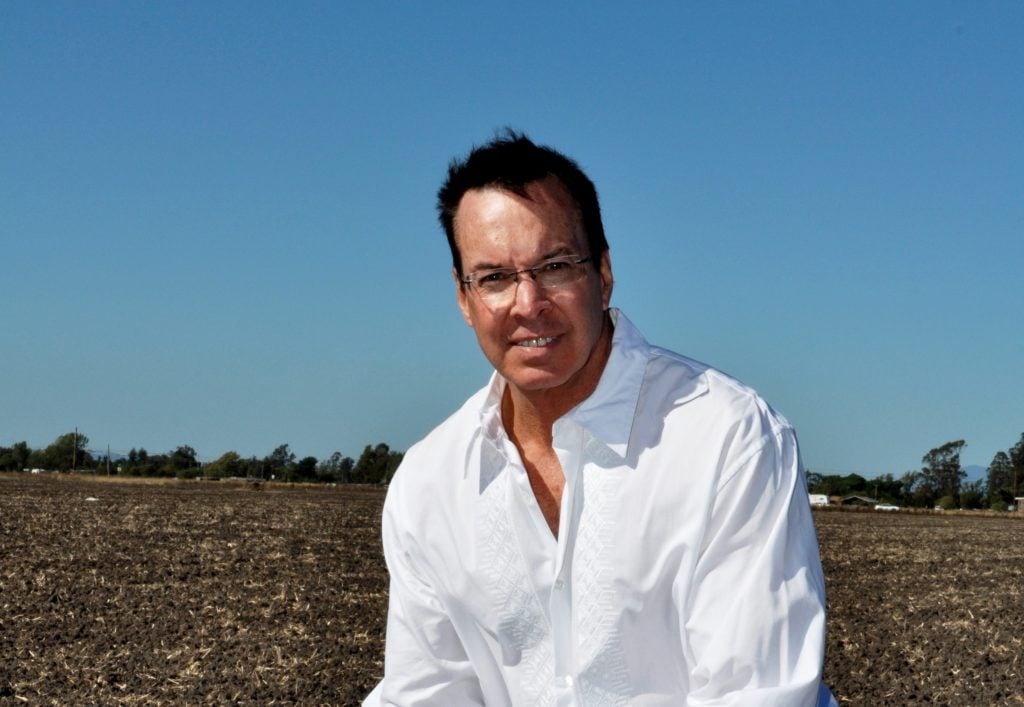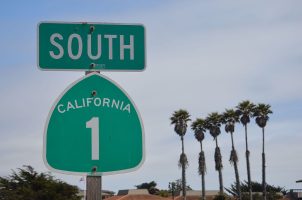California Tribal Leaders Propose Measure for Mobile Sports Betting Exclusivity
Posted on: November 2, 2021, 11:27h.
Last updated on: November 3, 2021, 08:50h.
Three California tribal chairmen have circulated a letter throwing out the possibility of yet another mobile sports betting measure on next year’s ballot. That plan would give tribes online exclusivity. California’s tribal gaming operators came out last week against mobile sports betting proposals sponsored by cardrooms and sportsbooks,

Bo Mazzetti of the Rincon Band of Luiseño Indians, Greg Sarris of the Federated Indians of Graton Rancheria, and Jesus Tarango of the Wilton Rancheria attached a draft copy of their proposal in the letter, which was first reported by Play California. The letter states a proposal would be submitted to the state’s attorney general’s office this week.
That letter was dated Friday, the same day as the Coalition to Authorize Regulated Sports Wagering issued a statement with a quote from Sarris. It was opposing two proposed measures that could appear on the November 2022 ballot. A tribal-backed measure that legalizes retail-only sportsbooks at tribal casinos and the state’s four thoroughbred racetracks has already been confirmed for next year’s election.
The petition for the measure backed by cardrooms is already being circulated and must be turned in to election officials in each of the state’s 58 counties by April 18. Supporters of the proposal, endorsed by seven major or aspiring sport betting operators, await documentation from state officials before they can start securing signatures. They will have until April 26, according to estimates from the Secretary of State’s office, to get their signatures submitted in time for next November’s election.
Both measures would need 997,139 validated signatures from registered voters to qualify.
If the tribes proceed, they, too, would need that many signatures, and would likely have less than four months to gather the signatures necessary.
Tribes Would Have Options on Sports Betting
The chairmen said they’re pursuing the proposal in an effort to protect the tribes’ exclusivity to Class III gaming. They urged their fellow tribal leaders to provide feedback and any proposed changes by Dec. 10.
The current draft measure would not allow cardrooms, pro sports teams, or “corporate online operators” to offer sports wagering. Racetracks, which are partners with tribal casinos for the retail measure, are also excluded.
The state’s racing industry has seen sports betting as a vehicle for generating revenues needed to bolster purses, as tracks have seen fields for races dwindle in recent years. A message to the Thoroughbred Owners of California seeking comment was not returned Tuesday.
There are several ways the tribes could participate in sports betting. Tribes may negotiate with the state to amend their compact, or they could accept a “model” amendment that would not need ratification by the state legislature.
The model amendment includes a 10 percent contribution of adjusted gross gaming revenue to the state for a homelessness and mental health fund, and another 10 percent contribution for a tribal revenue sharing trust fund. Both the cardrooms and sportsbooks proposals call for their proceeds to benefit social services, including homelessness and mental health.
Those tribes that choose to negotiate with the state must get their compacts passed by legislators and approved by the federal government. They would also be allowed to offer roulette and table games involving dice, a provision already in the retail-only initiative.
In addition, tribes could also agree to serve as hosts for other tribal sportsbooks through a hub-and-spokes model. Participating in such arrangements would not need a compact, an amendment, or federal approval.
COVID-19 Created Opportunity for Competing Measures
At the Global Gaming Expo last month in Las Vegas, California tribal leaders served on a panel to discuss sports betting opportunities in the state. The tribes began circulating petitions in January 2020, and had intentions of submitting them in time to get on last year’s ballot. They were derailed by the COVID-19 pandemic, causing proponents to postpone their efforts.
They succeeded in getting extensions because of the stay-at-home and other emergency orders that hindered signature gathering. However, in doing so, it opened the door for commercial entities to get on the ballot with competing measures.
In mid-August, supporters of California’s commercially licensed cardrooms submitted their measure that would give cardrooms, racetracks, pro sports teams, and tribal casinos access to retail and online sports betting. It would also allow cardrooms to offer unbanked versions of traditional casino card games, like blackjack. Currently, the cardrooms offer variations of those games.
Two weeks later, a measure backed by seven sports betting operators filed an initiative that would grant statewide licenses for $100 million. It would allow tribal casinos to get licensed for $10 million, but only by using the tribal name or a registered trademark for the name of their app.
Sportsbooks Won’t Back Down on California
With a population of nearly 40 million, California is, by far, the most populous state in the US. Its population is nearly double that of Florida and New York, which rank third and fourth in the country, respectively. It’s such a lucrative market that the companies behind the statewide mobile initiative have combined to contribute $100 million to the campaign.
“Californians for Solutions to Homelessness and Mental Health Support” said their proposal, backed by Bally BET, BetMGM, DraftKings, Fanatics, FanDuel, Penn National, and WynnBET, was not in conflict with the tribal retail measure. The group then revised its plan to require the operators applying for the $100 million licenses to first partner with a tribal gaming organization.
A spokesperson for the group behind the sportsbooks’ measure said their proposal remains the best option for the state.
“We are committed to our measure’s success,” Nathan Click told Casino.org Tuesday. “The independent Legislative Analyst’s Office found our measure would provide hundreds of millions in solutions each year to solve homelessness, as well as real revenue for California Tribal nations, by allowing regulated entities to offer safe, responsible sports betting online.”
Clark also noted that the measure “won bipartisan support from advocates and leaders on the front lines of fighting homelessness, because it provides real solutions to California’s most pressing challenge.”
Tribal Gaming Group Yet to Discuss Plan
One of the two tribal organizations behind the opposition to the commercial proposals is the California Nations Indian Gaming Association (CNIGA). The group has 39 tribal nation members, including the three represented in the letter.
James May, a spokesperson for CNIGA, told Casino.org Tuesday that its members have not had a chance to talk about the new proposal. The association’s bimonthly meeting in October took place before the letter was released.
In addition to opposing the commercial proposals, CNIGA already has endorsed the tribal retail initiative. The membership voted on that in February 2020.
The association also has what is called its “guiding principles” on sports betting. Points covered in the policy document include ensuring tribal exclusivity for at least existing gaming options is respected. It also requested that offering sports betting beyond tribal operations must have tribal approval, and noted that the socioeconomic impact of legal sports betting must be completed before proceeding with a proposal to amend the state constitution. It concluded that tribal governments need to be at the table during any discussion of expanded gaming in California.
At G2E, California’s tribal gaming leaders explained why the initial measure did not include mobile. Mark Macarro, chairman of the Pechanga Band of Luiseño Indians, sports betting “still a lot if suspicion statewide” at the time.
In addition, some of the smaller operators expressed concerns about the impact mobile wagering would have on their operations.
While it remains to be seen whether some California tribal operators still have those concerns, the letter from Mazzetti, Sarris, and Tarango says that if either the cardrooms or the sportsbooks measure gets on the ballot and passes next year, then all tribes will lose their exclusivity.
A spokesperson for the Graton Rancheria said the tribe would not comment on the letter. It referred to the statement Sarris made regarding the tribes’ opposition to the commercial proposals.
“We remain committed to responsible sports wagering at tribal casinos that have a proven track record of operating safe, regulated gaming in this state,” he said in that release. “We are prepared to make our case to the voters, just as we have in previous elections, to oppose these deceptive and risky propositions.”
Related News Articles
Most Popular
FTC: Casino Resort Fees Must Be Included in Upfront Hotel Rates
Genovese Capo Sentenced for Illegal Gambling on Long Island
NBA Referees Expose Sports Betting Abuse Following Steve Kerr Meltdown
UPDATE: Former Resorts World & MGM Grand Prez Loses Gaming License
Most Commented
-
UPDATE: Whiskey Pete’s Casino Near Las Vegas Closes
— December 20, 2024 — 30 Comments -
Caesars Virginia in Danville Now Accepting Hotel Room Reservations
— November 27, 2024 — 9 Comments -
UPDATE: Former Resorts World & MGM Grand Prez Loses Gaming License
— December 19, 2024 — 8 Comments -
FTC: Casino Resort Fees Must Be Included in Upfront Hotel Rates
— December 17, 2024 — 7 Comments
















No comments yet